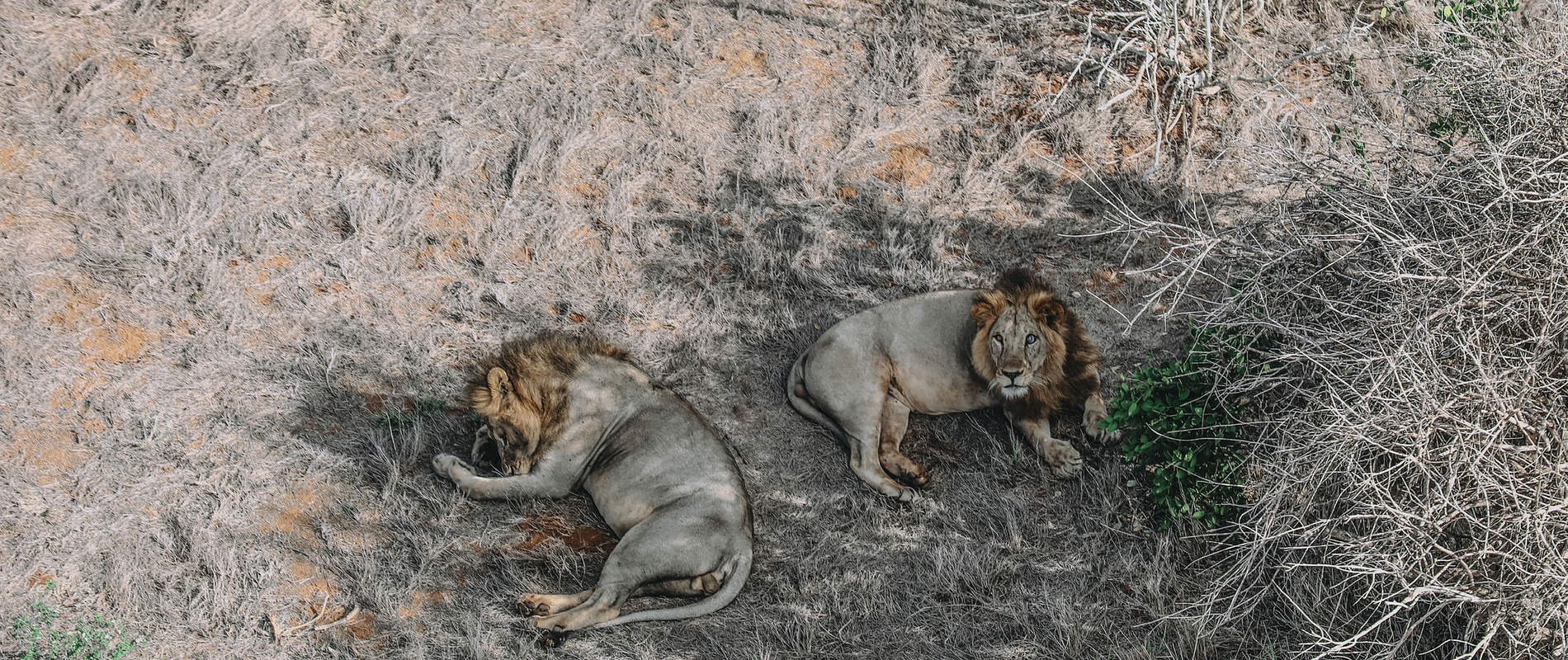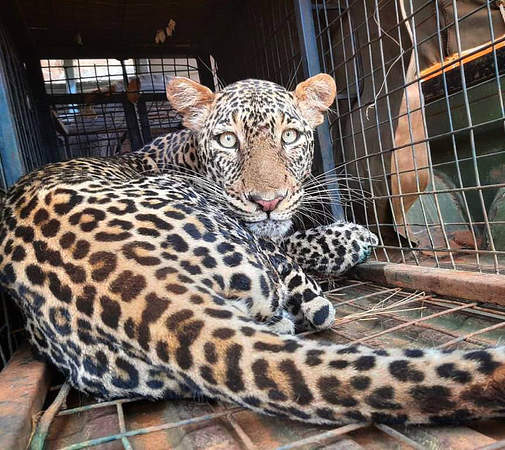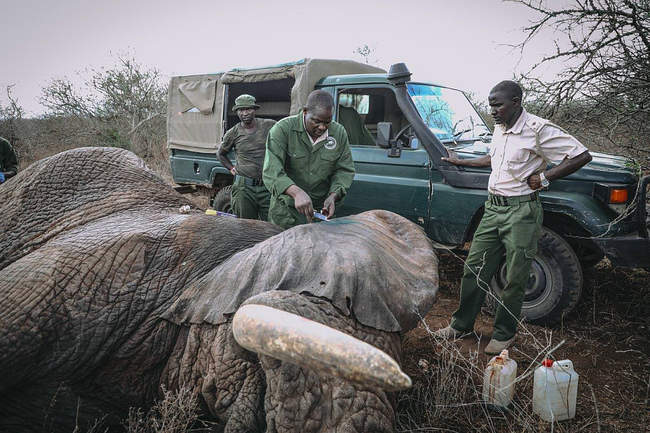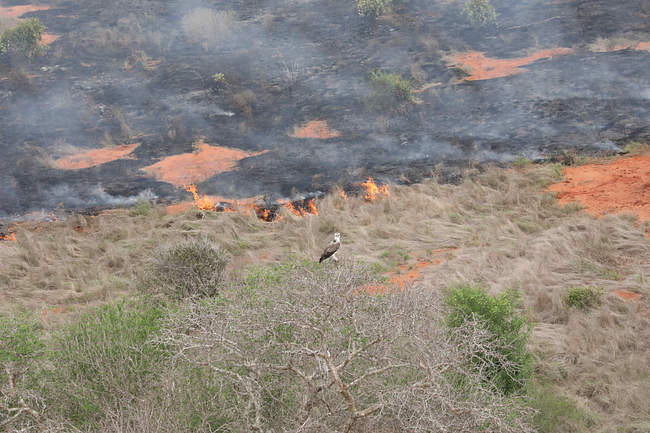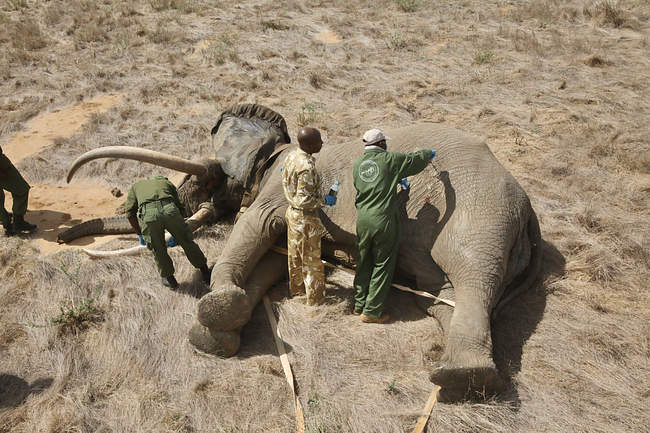October marked the end of the dry season in Tsavo, as the first rains fell, and with that we hope the end to the fire season that has plagued the entire ecosystem for over 3 months.
Fires in the Chyulu Hills National Park reached their peak in October, with several widespread fires getting into lava forests where they proved impossible to fight effectively. Fortunately, these fires burned relatively slowly and did not cause a huge amount of damage to vegetation. As conditions worsened towards the end of this dry season, two orphaned elephant calves were discovered in separate incidents, with each being rescued with assistance from the SWT helicopter.
Very little poaching activity or signs of poaching activity were observed from the air in October. In fact, only one recent campfire was seen, and apart from that, the only evidence of poaching was a number of elephants attended to by our SWT/KWS Veterinary Units for poaching related wounds. Supported by the SWT Air Wing, the Tsavo and Amboseli Mobile Vet Units were both active in the month across the Tsavo Conservation Area, attending to the elephants cases and an incident involving a young leopard which had found its way onto community land and needed to be relocated back into the National Park. While the SWT helicopter provided further assistance in the treatment of an elephant in the Kibwezi Forest.
Charcoal operations were surveyed both in South Kitui National Reserve and the north-eastern corner of Tsavo East. There was a moderate reduction in livestock numbers in both Tsavo East and Tsavo West NPs, with the exception of the Ziwani, Old Rombo areas of Tsavo West, where only a small reduction was observed, despite some pressure on the ground by KWS teams.

The greatest highlight of October was undoubtedly the arrival of the first showers of the rainy season, signalling an end to the worst fire season in recent memory. Pilots were also treated to several spectacular lion and wild dog sightings.
